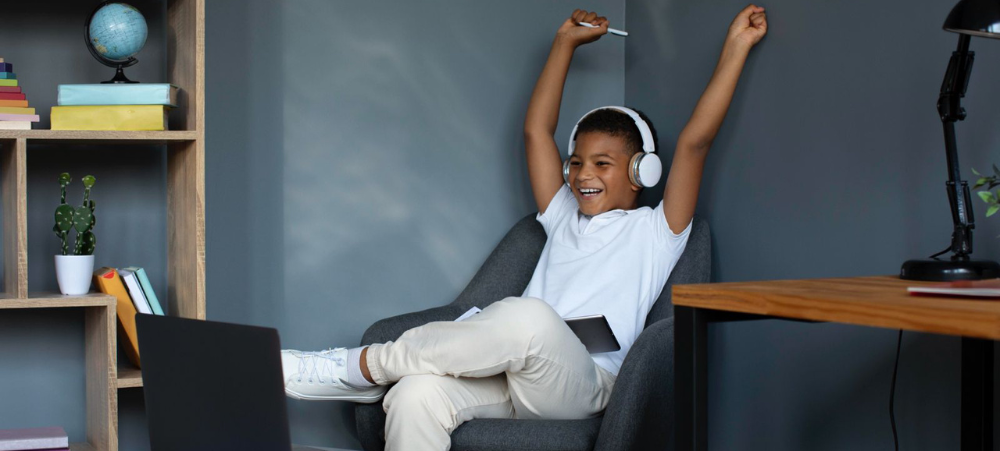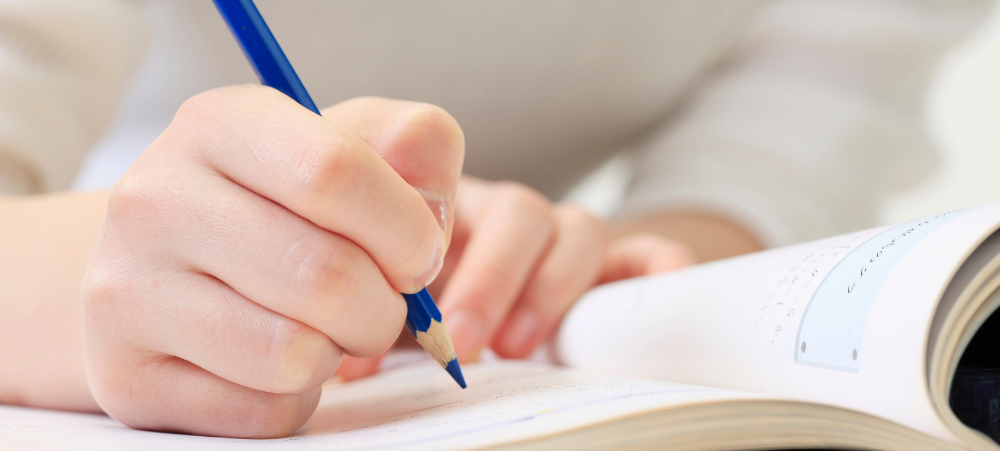The year feels like it’s just begun, yet here we are, already a quarter of the way through. Before we know it, exams will be upon us. Yes, I know it’s the kids who write them, but it’s us who bear the brunt of the anxiety, the grumps or the total blasé approach that leaves us in a knot of anxiety on their behalf. So how best to cope?
In our family, the philosophy has always been, ‘Work hard, play hard.’ This started for us as adults, juggling busy work careers while also wanting to take time out to escape to the bush or the sea for much-needed breaks, and continued when we had children and tried to teach them to balance their studies and relaxation. Note that I say ‘tried’. Kids always have their own ideas of what is important and can veer off in one direction or the other on a whim. As parents, all we can do is our best to nudge them back on track as often as possible.
So how do we get them to work hard? From homework sessions where it literally took two hours to get the pencil to touch the paper to learn ten words for a spelling test, how on earth did we get to a studious matric who was able to motivate himself to achieve four distinctions? Honestly, I couldn’t tell you as I’m still amazed (and delighted). However, I can tell you what we tried, and what I suggest for my students. You can then see how much you are able to filter through to your beloved children and leave the rest to them.
Try to develop good study habits from an early age. I certainly don’t mean three or four years old – at that stage they should be climbing trees and investigating strange creatures in the garden. Never forget that kids learn best through play (I still teach my senior students the concept of debits and credits using Smarties and Jelly Tots). I’m referring to when they start coming home from school with a reader or need to write a sentence or two. The homework may be designed to take fifteen minutes (even if ours took hours for our son and all of five minutes for our daughter when little) but be sure to teach your children to set aside time to work. They will probably need some time to recover from the school day – have a snack, maybe change – but then it’s time to sit down and focus. Let them get used to the idea that homework tasks need to be finished before they are allowed to do as they please, and definitely before any screen time! Of course, your schedule may not lend itself to such a simple solution if you work full-time or are also juggling numerous other offspring while taxiing them to sundry swimming / soccer / ballet lessons. In these cases, get clever. I used to do reading with one child while the other was in the pool learning how not to drown. Spelling happened in the car on the way to and from school.
As they get older, ensure that they have a proper desk and later, suitable devices. If possible, let them be part of the process of choosing what they like, and listen to what they say works best for them (within reason, of course – a gaming computer is NOT necessary for primary school homework). For high school, my daughter preferred an iPad, my son a laptop.
As the quantity of work increases, students need to learn how to manage the material so as to be able to remember and use it correctly in assessments and life situations. When we were at school last century, the focus was on recall, which I was terrible at! I hated memorising facts, and much preferred learning how to do something instead. As you can imagine, Accounting was much more fun than History for me. These days one simply needs to tap a few words into a device and a multitude of answers spring forth. ChatGPT will even write an essay for you at will. In this day and age, being able to understand and work with the material is much more important. Analysis and evaluation are critical skills that will help your kids navigate further studies and the working world. At school level, different curricula focus on different skills, but all have moved beyond simple recall.
A solid foundation of knowledge is needed, and this depth can be developed by working with the material in a variety of different ways. In addition to the good old mind-maps and other summaries to make the content smaller, I encourage my students to do the opposite – make it bigger. “Go surfing!’ is what I tell these rather surprised kids. Yes, surf the web to find out more information. Google a few key words and read whatever comes up. Make some popcorn and pop those key words into YouTube for some ‘movie time’. There is an incredible amount of additional, interesting material out there. By reading and watching more than just what was done in class, they are exposed to additional perspectives, opposing points of view and sometimes the one thing that makes it all click. A third part of this mishmash is working through past paper questions, even from early in the year. If you are lucky enough to be able to get hold of a breakdown showing which questions relate to which topics, the questions can be attempted when the work is learnt during the year and not only just before an exam. This helps students to see exactly what is required of them and help them towards developing the skills required to create strong answers. Together, these will all work towards developing long-term memory and better higher-order thinking skills.
With all this hard work going on, breaks are a must. Try to figure out each child’s body rhythm and concentration level. Some students are able to work for 50 minutes and then have a short ten-minute break before continuing. Others may half an hour kicking a ball about in between half-hour spurts of work. Try different patterns over time and watch their faces for the tell-tale signs of fade-out. The glazed eyes are a definite give-away. Increased fidgeting is another.
Proper downtime after a morning or afternoon of hard work is precious and should be carefully planned for and protected. Students should be allowed to choose something they enjoy doing most and see this as a guilt-free reward for working well. Too often students become focused on the need to work incredibly hard, and whether or not they are managing to do this, feel guilty when they are not sitting at their desk. Remind them that if they have put in the required time and effort, this downtime is theirs, and is precious, and just as important as the work. My dear father used to remind me that the word ‘recreation’ is derived from ‘recreate’ – reminding me of the need to recreate myself by doing something pleasant. The best choices are hobbies, exercise and social activities, although screen time may be more tempting to some. This is fine, too.
In between the weeks of work and play, try to take weekend or holiday breaks together as a family. In the same way that little spurts of work need little breaks, long weeks or months of effort require a proper getaway for all of you to recharge your batteries and reconnect. As parents, you’ll need this as much as your kids, I’m sure!
About Barbara
Teaching isn’t about the subject. It’s about the kid.
En route to becoming a CA Barbara realised that she was born to teach, and veered off on this exciting and rewarding path 28 years ago with a B.Com and H.Dip.Ed from Wits. She has a passion for Accounting and commercial subjects and loves to make the ‘scary’ subjects more accessible and fun for all students, as diverse as their needs may be. This served her well over many years teaching at Redhill School, writing her EZ Learn books and becoming very involved in the IEB, culminating in being an Accounting examiner from 2010 to 2013.
She finally chose to leave formal teaching in 2017 to spend more time with her family, and used the time to embark on exploring the Cambridge syllabi and online teaching. Covid saw a complete shift in the online landscape which became even more exciting and resulted in EZ Learn Books (Pty) Ltd growing to now keeping her busy full-time, with part-time help from other teachers and students. When she’s not teaching, she loves to play with yarn. Crochet and knitting keeps her fingers busy and her mind soothed.
- Managing Year-End Stress: Tips to Help Your Student Cope with Final Exams - November 15, 2023
- Why Business Studies are Important for a Successful Future - September 4, 2023
- Accounting myths unmasked - August 24, 2023






1 thought on “Work hard, play hard!”
Great advice! I especially love the “go bigger” hint. It makes so much sense.